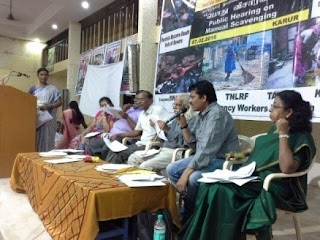In 2016, the ILO launches a new global flagship programme for social protection. This programme can make social protection floors (SPFs) a national reality in 21 target countries that still have underdeveloped or fragmented social protection systems. At the country level, the programme carries out assessments of social protection situations and provides recommendations to build nationally-defined social protection floors, supports the design of new schemes or reforms of existing schemes, supports their implementation and improves the operations of social protection systems. A global campaign supports the whole process to inform, train, and convince decision-makers of the importance of implementing social protection systems and developing partnerships to maximize the positive impacts.
This programme builds on the Recommendation concerning national floors of social protection, 2012 (No. 202), in June 2012. National social protection floors guarantee a basic level of protection for all residents and children. Countries should also progressively provide higher levels of coverage to
as many people as possible. Social protection floors have been endorsed by UN member States, supported by the G-20 and acknowledged at many other forums.
For WSM partners in Asia, three countries are concerned:
- India: extension of social protection to workers in the informal economy,
- Indonesia: implementation of the new Social Security Provider Law, implementation of a single window service in 100 districts and
- Cambodia: implementation of a health insurance scheme and a single window service in Siem Reap province
For more information, see ILO website here.
This programme builds on the Recommendation concerning national floors of social protection, 2012 (No. 202), in June 2012. National social protection floors guarantee a basic level of protection for all residents and children. Countries should also progressively provide higher levels of coverage to
as many people as possible. Social protection floors have been endorsed by UN member States, supported by the G-20 and acknowledged at many other forums.
For WSM partners in Asia, three countries are concerned:
- India: extension of social protection to workers in the informal economy,
- Indonesia: implementation of the new Social Security Provider Law, implementation of a single window service in 100 districts and
- Cambodia: implementation of a health insurance scheme and a single window service in Siem Reap province
For more information, see ILO website here.

















